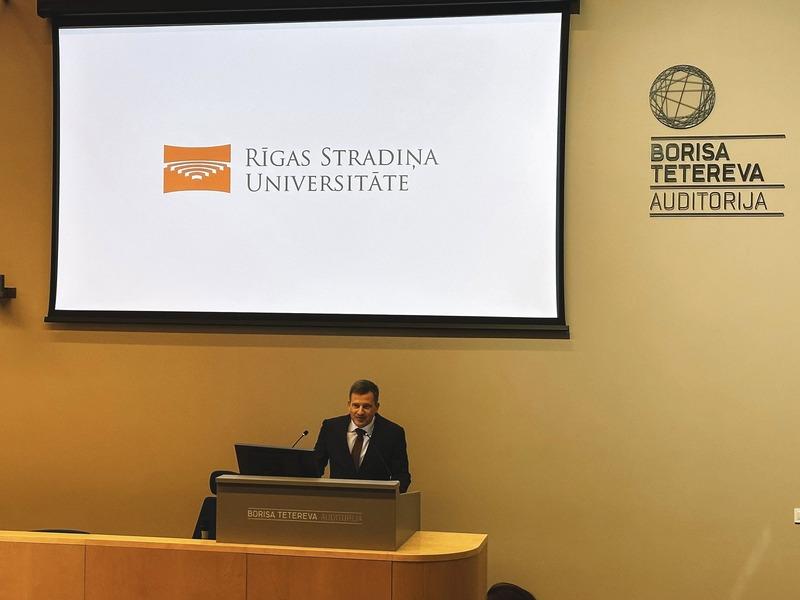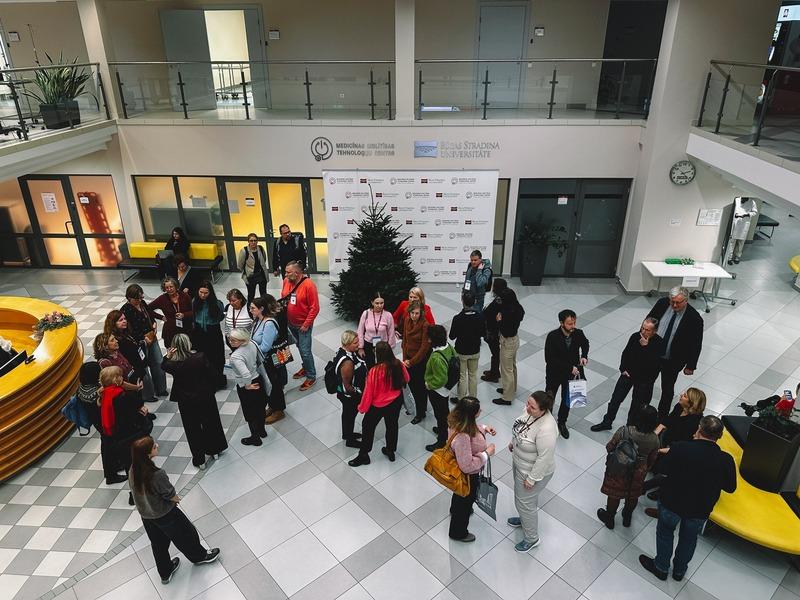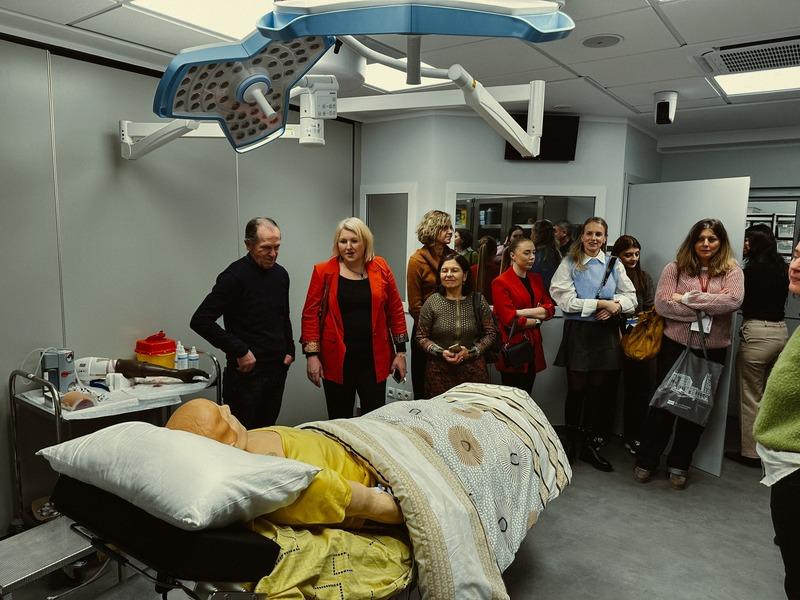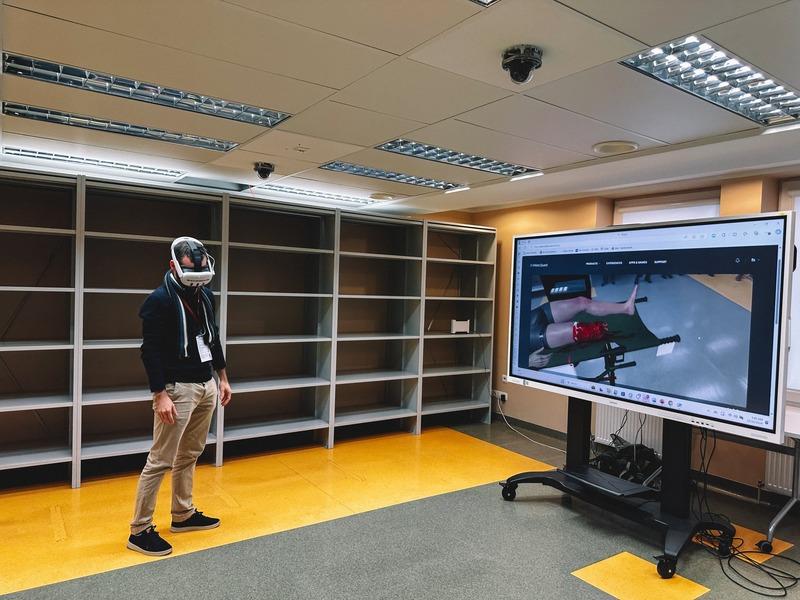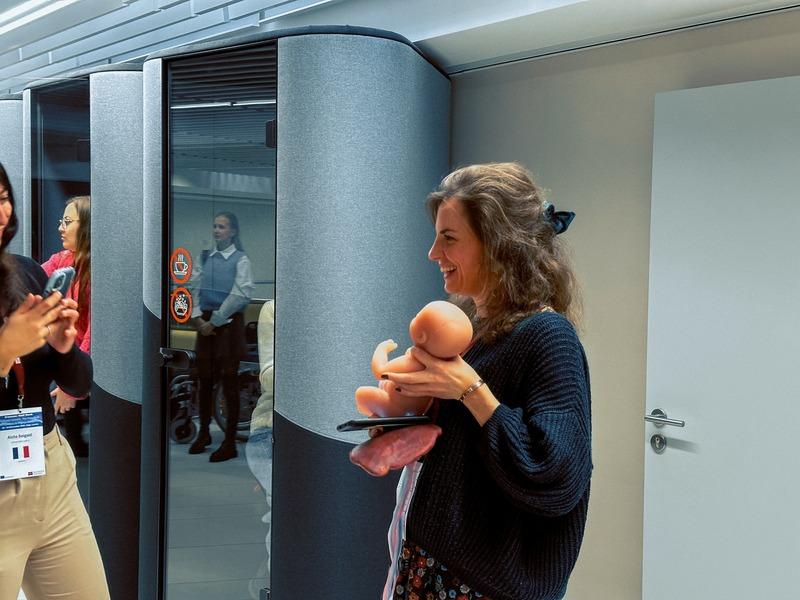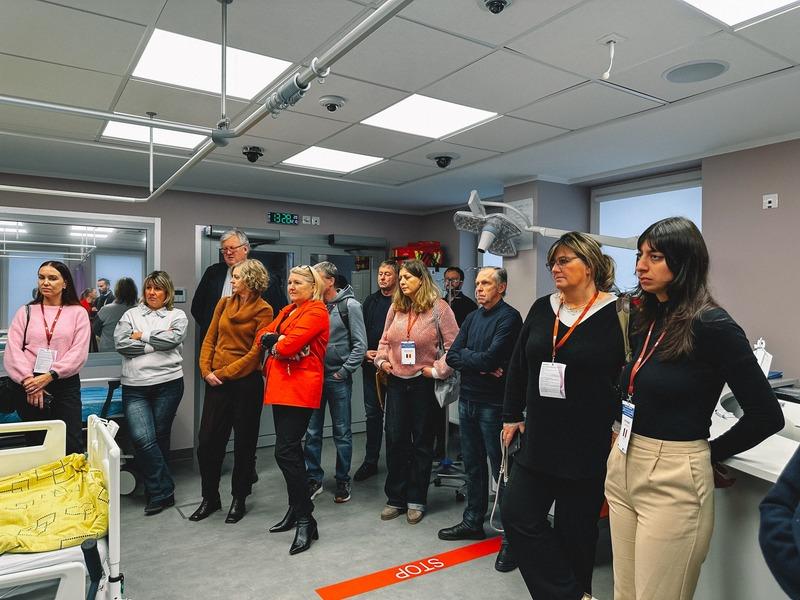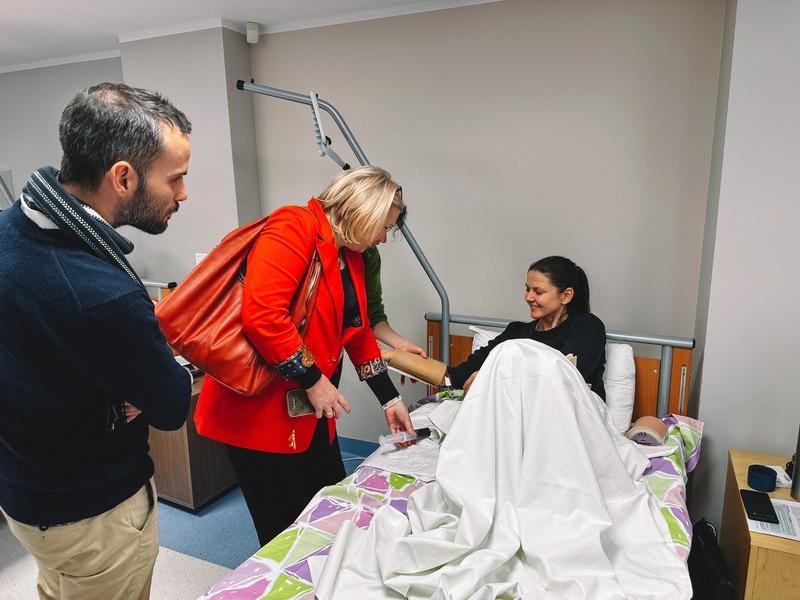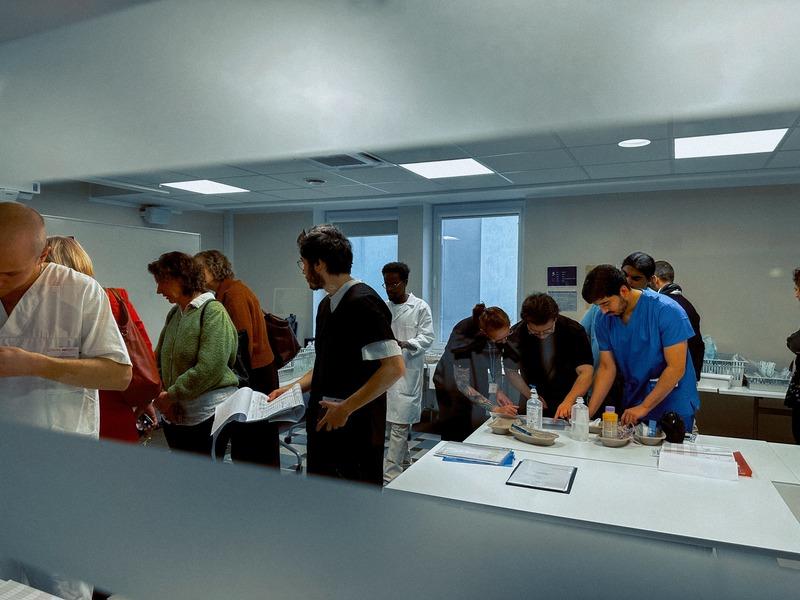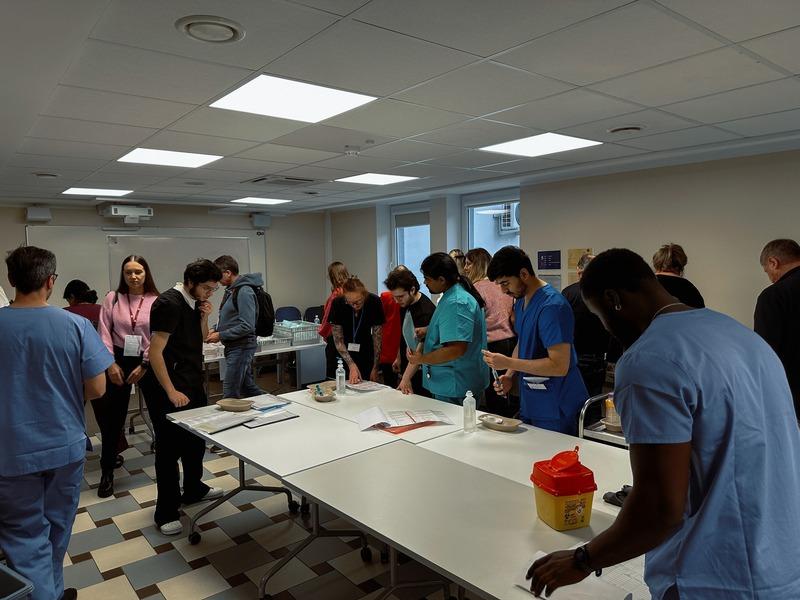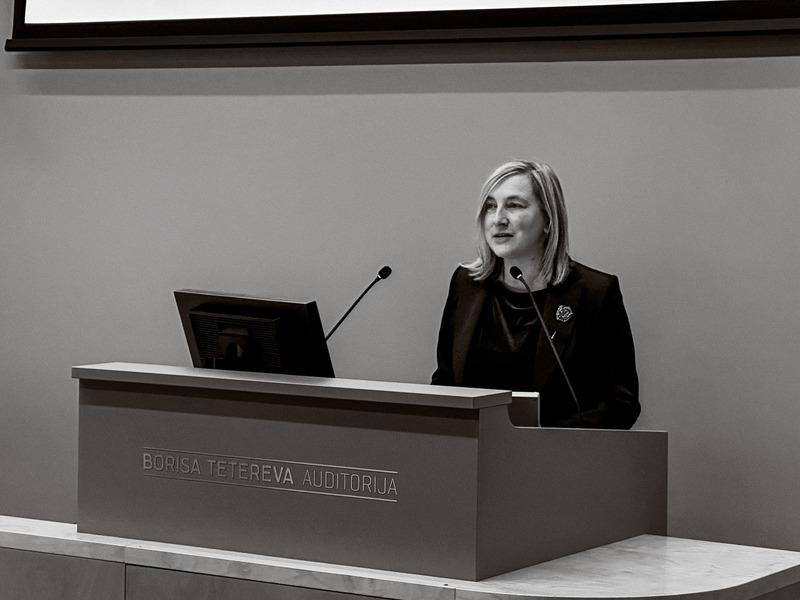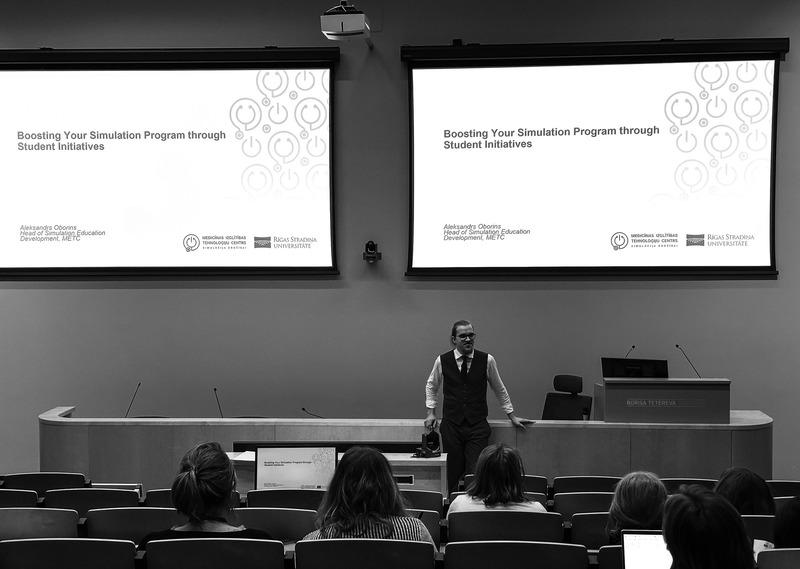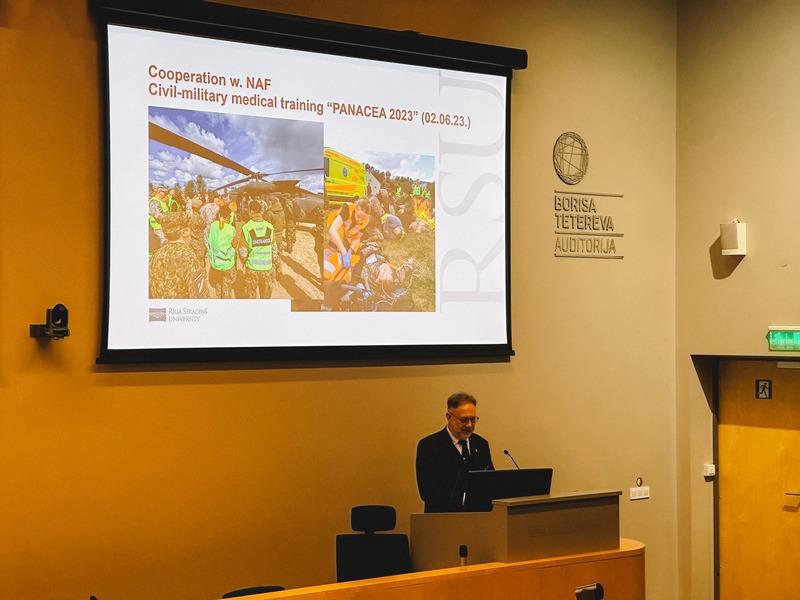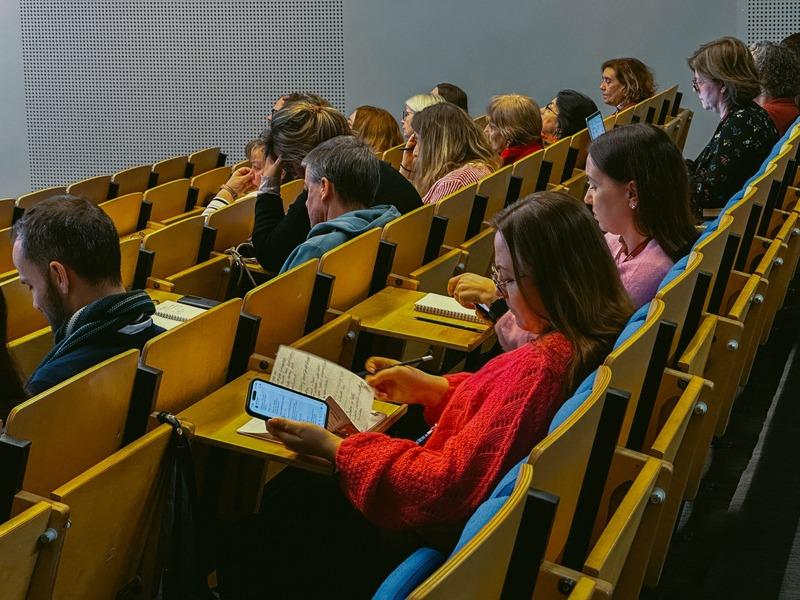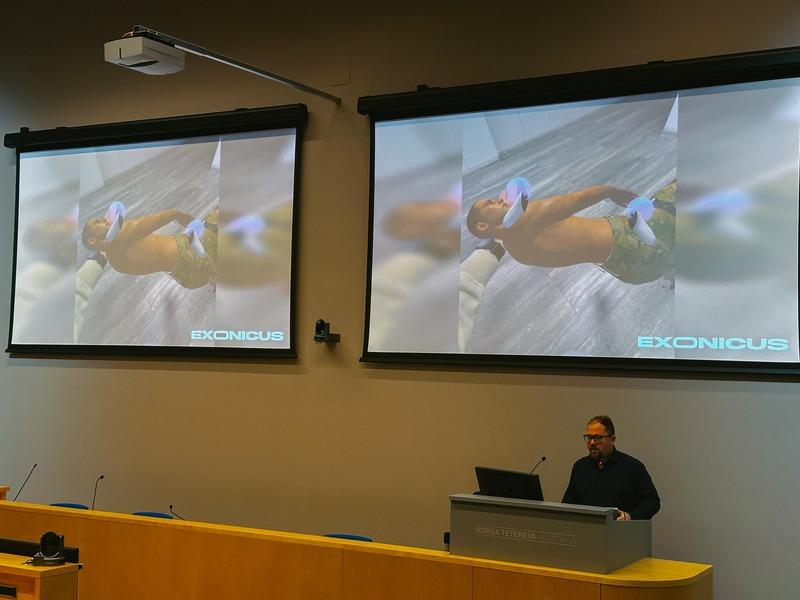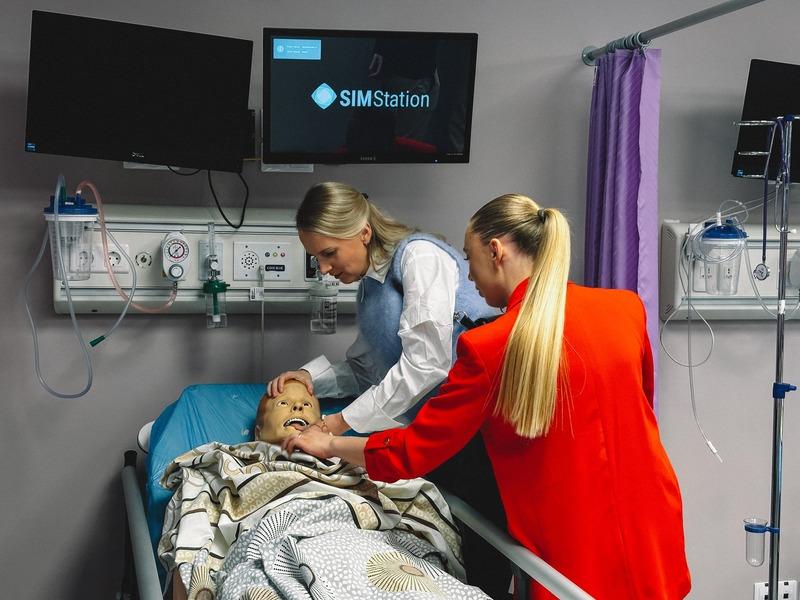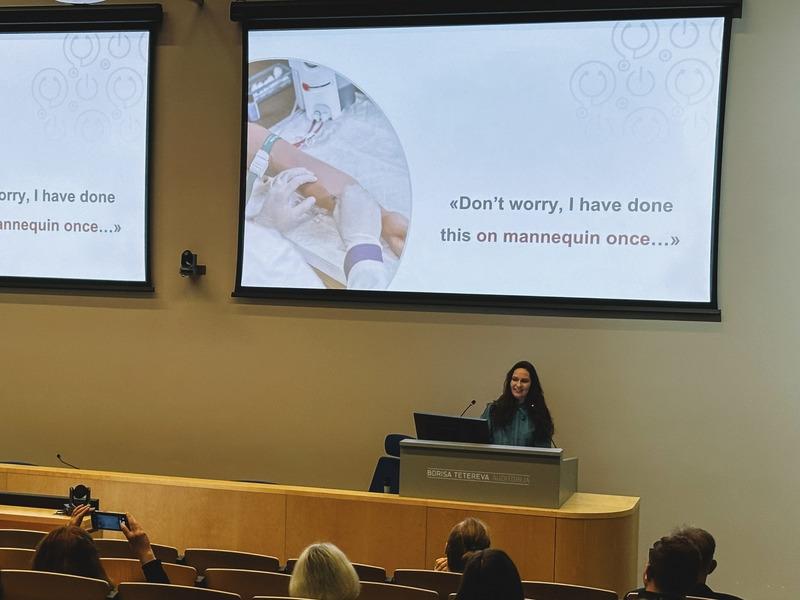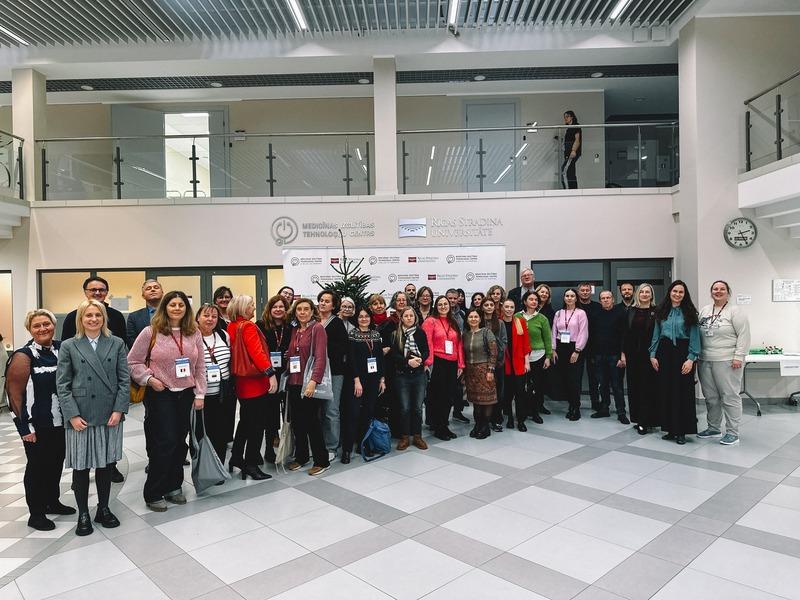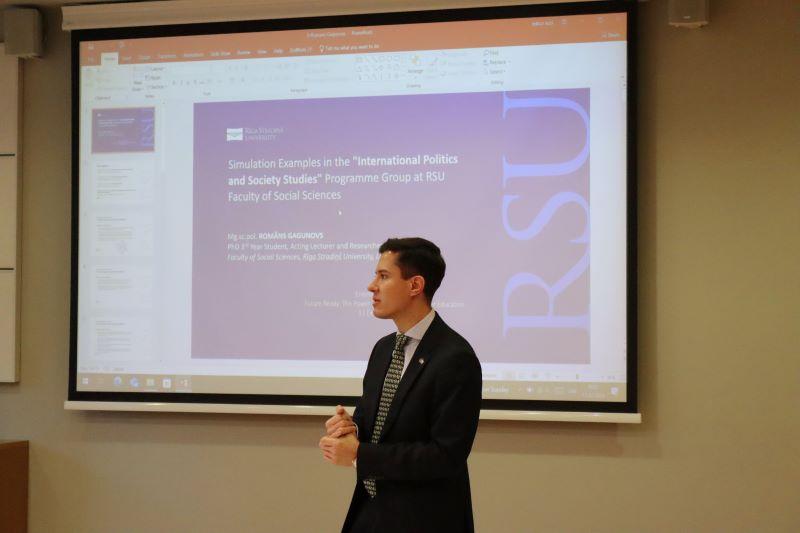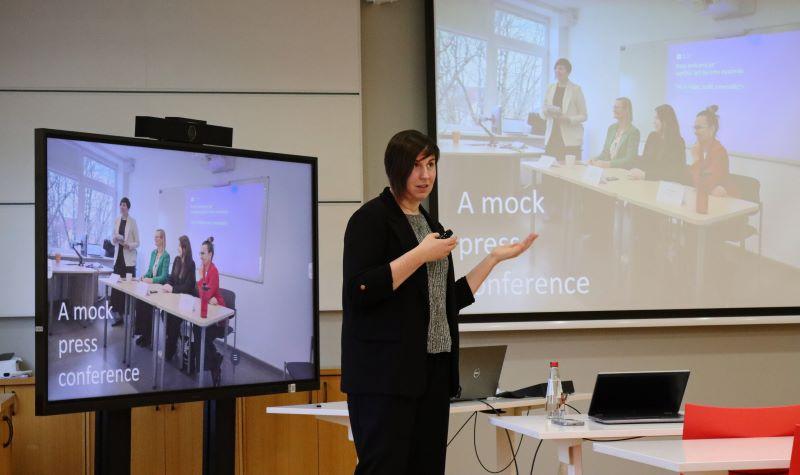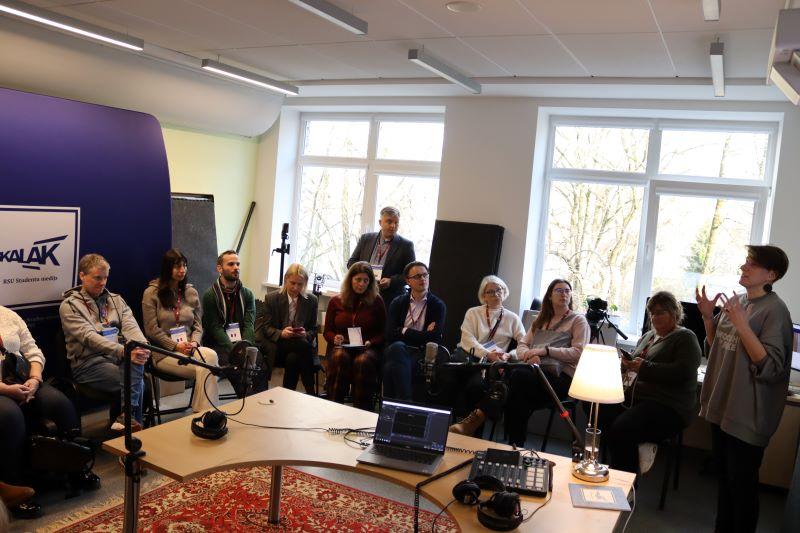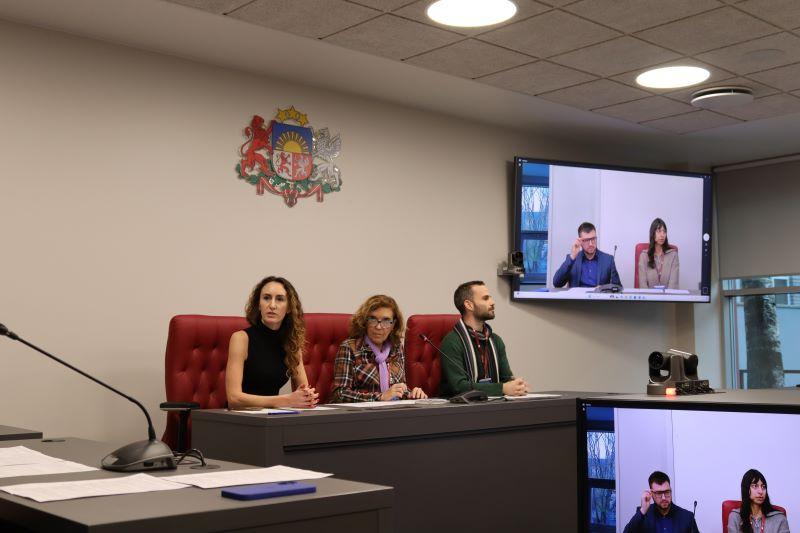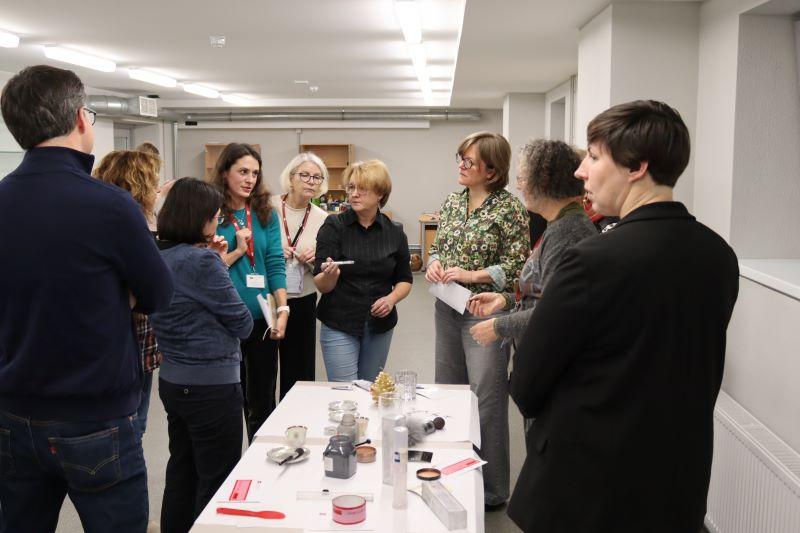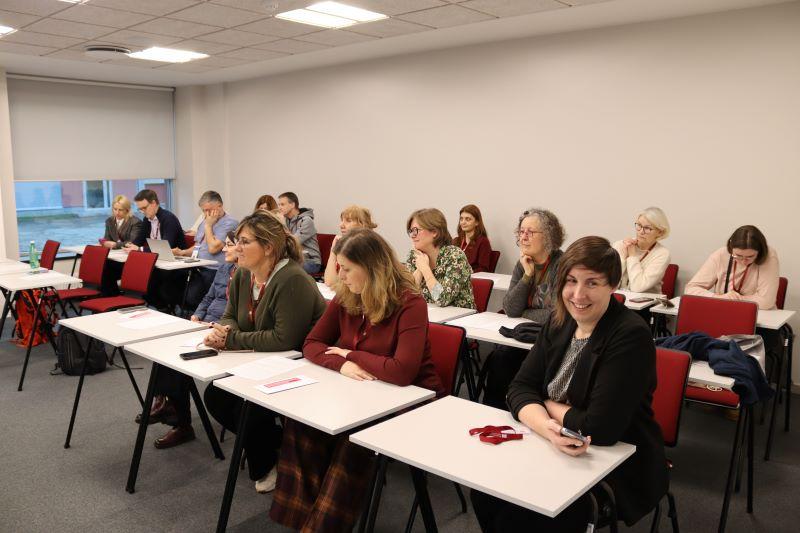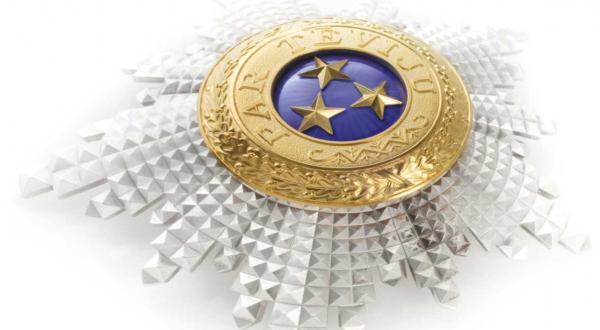Simulation education in the spotlight at RSU Erasmus+ Staff Week
From December 10 to 13, Rīga Stradiņš University (RSU) hosted an Erasmus+ Staff Week titled ‘Ready for the future: The power of simulation in higher education’. The event brought together 32 participants from eight countries, providing an opportunity to explore the use of simulation in teaching and higher education development. The participants included both academic and administrative staff from Belgium, France, Finland, Romania, Estonia, Ukraine, Spain, and Lithuania.
Combining theory and practice: The role of simulations in medical education
The first day of the event focused on medical education. At the RSU Medical Education Technology Centre (METC), participants had the opportunity to visit a simulated hospital, where healthcare professionals train to handle complex situations. Presentations were given by RSU experts and guests, including Sandis Kondrāts from Exonicus LLC, who demonstrated the use of a trauma simulator. As METC Director Ieva Šlēziņa highlighted, the METC aims to integrate simulation as a core component of the learning process, equipping students with practical skills for real-life situations.
Engaging the mind: The role of simulations in social sciences education
On the second day, participants focused on the simulations on offer in the social sciences; Līga Ozoliņa, Acting Vice-Dean of the Faculty of Social Sciences, gave an overview of how to complement the learning process with simulations; Acting Lecturer Romāns Gagunovs presented concrete examples of simulations from international politics and society study programmes; Head of the Communication and Media study programme group Lāsma Šķestere and Researcher Inguna Potetinova also shared examples of best practices. In the afternoon, participants visited the RSU Forensic Science Laboratory, where each person could make a unique memento of their own fingerprints supervised by Aelita Zīle. A radio interview organised by the student media Louder with Marta Herca allowed students to practise their public speaking skills, while a simulation led by Dean Karina Palkova gave an insight into the challenges of legal science.
Using artificial intelligence in higher education: Opportunities and challenges
On the third day, the RSU Guidelines for the Use of Artificial Intelligence, presented by Matīss Sīlis, attracted great interest. Participants in the discussion agreed that the potential of artificial intelligence to improve distance learning is enormous. There was also presentation of digital simulation platforms to help students improve their analytical and problem-solving skills were also presented.
On the fourth day, participants visited the Mentzendorff House to get a historical perspective on the daily life of the citizens of Riga. This tour provided a refreshing cultural break after the intensive discussions and learning.
Results and future cooperation
At the end of the event, four new cooperation agreements were signed with universities in Romania, Belgium, and Lithuania, marking a new phase of collaboration in Erasmus+ projects.
In partnership with Romanian and Belgian colleagues, it was agreed to organise an intensive study programme, the Blended Intensive Programme (BIP), for students from business studies and nutrition studies.
This Erasmus+ Staff Week demonstrated that integrating simulation into the learning process not only strengthens students' knowledge but also helps develop key skills for the future labour market. RSU has become an important platform for the exchange of ideas and innovation, laying the groundwork for future international cooperation.

